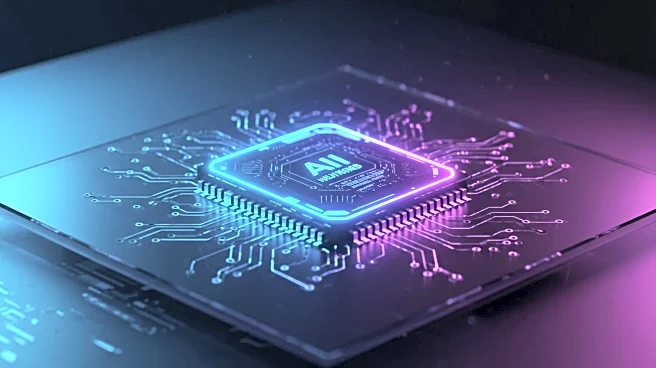What's Happening?
Meta has entered into a partnership with the generative AI startup Midjourney to license its 'aesthetic technology' for future products. This collaboration is intended to improve the visual quality of Meta's artificial intelligence models. The move is part of Meta's strategy to stand out in the competitive AI market, where it faces strong competition from industry leaders such as OpenAI and Google. This agreement is a significant step in Meta's efforts to revitalize its AI capabilities, following a recent reorganization of its AI initiatives under Superintelligence Labs. The decision comes after the mixed reception of Meta's latest open-source AI model, Llama 4, and is part of a broader push to advance in the competitive AI landscape.
Why It's Important?
The partnership between Meta and Midjourney is crucial as it highlights Meta's commitment to enhancing its AI offerings amid intense competition. By licensing Midjourney's technology, Meta aims to improve the visual appeal of its AI models, which could potentially attract more users and developers to its platform. This move could also help Meta regain its footing in the AI sector, where it has been lagging behind competitors like OpenAI and Google. The collaboration may lead to the development of more sophisticated AI applications, benefiting industries that rely on advanced visual AI technologies. Additionally, this partnership underscores the growing trend of tech giants collaborating with startups to leverage innovative technologies and maintain a competitive edge.
What's Next?
As Meta integrates Midjourney's technology into its AI models, the company is likely to focus on refining and launching new AI products that showcase enhanced visual capabilities. This could lead to increased competition in the AI market, prompting other tech companies to seek similar partnerships or develop proprietary technologies to keep pace. Stakeholders, including developers and businesses that utilize AI, will be closely monitoring Meta's progress to assess the impact of these advancements on their operations. Furthermore, the success of this partnership could influence future collaborations between large tech firms and startups, shaping the landscape of AI development and innovation.









